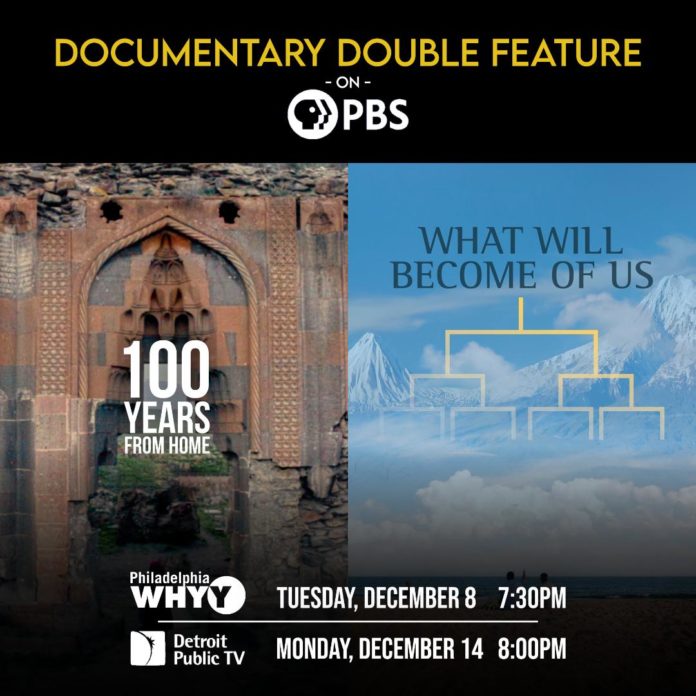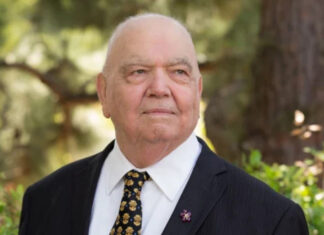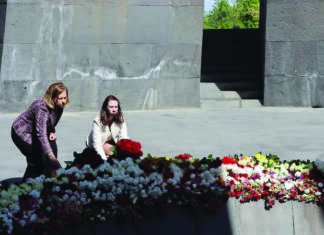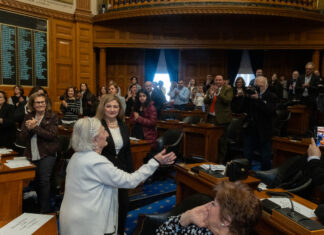PHILADELPHIA and DETROIT — Generations of Americans of Armenian descent have had to reckon with the aftermath of a genocide that nearly annihilated their people. Their stories have a new urgency in light of the recent war that broke out between Azerbaijan, backed by Turkey, and the Armenians in the contested region of Nagorno-Karabakh, also known as Artsakh. The complex issues that have caused lasting trauma and led to the renewed violence today are illuminated in a pair of moving, deeply personal documentary films coming soon to public television stations in Philadelphia and Detroit.
In the greater Philadelphia area, “What Will Become of Us,” directed by Stephanie Ayanian and Joseph Myers, airs on PBS station WHYY on Tuesday, December 8 at 7:30 p.m. ET. “100 Years from Home,” directed by Jared White and produced by Lilit Pilikian, follows directly after at 9:00 p.m. ET.
In Detroit, “100 Years from Home” airs on PBS station WTVS Detroit Public Television on Monday, December 14 at 8:00 p.m. ET, with “What Will Become of Us” directly after at 9:30 p.m. ET.
There will also be an encore broadcast of “100 Years from Home” in the Southern California area on PBS SoCal on Thursday, December 10 at 9:00 p.m. PT.
“100 Years from Home” is a vivid portrait of an American woman grappling with questions about cultural identity, intergenerational trauma, family, survival, and finding her place in her community and the world. The film was nominated for “Best Documentary” at the 2019 Arpa International Film Festival in Hollywood, Calif. where it premiered to a sold-out screening.
The picture follows Pilikian’s journey as she searches for her great-grandparents’ house in modern-day Turkey, which they were forced to abandon over a century ago during the Armenian Genocide in the Turkish Ottoman Empire that killed over 1.5 million Armenians during and after World War I.










